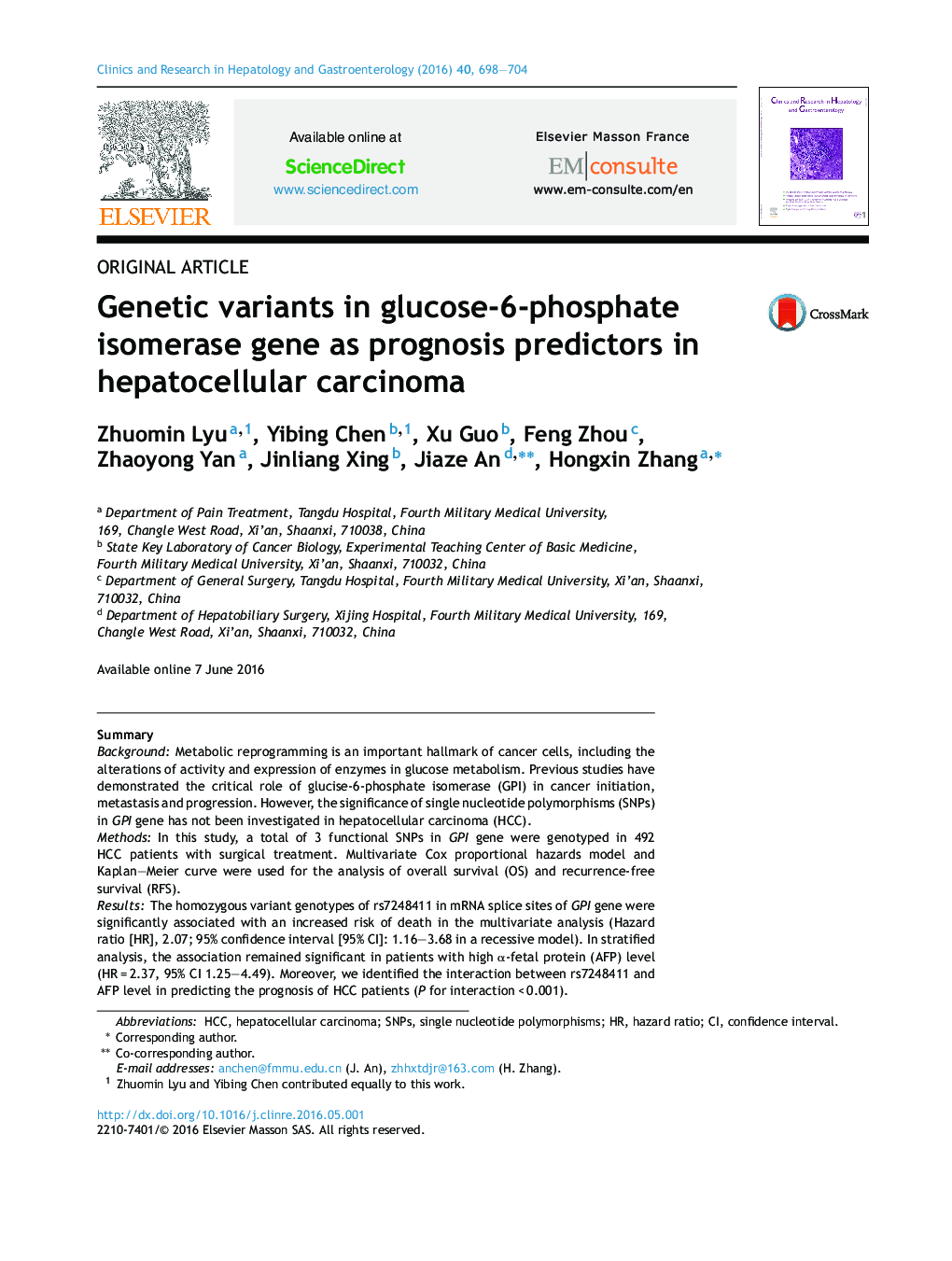| Article ID | Journal | Published Year | Pages | File Type |
|---|---|---|---|---|
| 6091699 | Clinics and Research in Hepatology and Gastroenterology | 2016 | 7 Pages |
SummaryBackgroundMetabolic reprogramming is an important hallmark of cancer cells, including the alterations of activity and expression of enzymes in glucose metabolism. Previous studies have demonstrated the critical role of glucise-6-phosphate isomerase (GPI) in cancer initiation, metastasis and progression. However, the significance of single nucleotide polymorphisms (SNPs) in GPI gene has not been investigated in hepatocellular carcinoma (HCC).MethodsIn this study, a total of 3 functional SNPs in GPI gene were genotyped in 492 HCC patients with surgical treatment. Multivariate Cox proportional hazards model and Kaplan-Meier curve were used for the analysis of overall survival (OS) and recurrence-free survival (RFS).ResultsThe homozygous variant genotypes of rs7248411 in mRNA splice sites of GPI gene were significantly associated with an increased risk of death in the multivariate analysis (Hazard ratio [HR], 2.07; 95% confidence interval [95% CI]: 1.16-3.68 in a recessive model). In stratified analysis, the association remained significant in patients with high α-fetal protein (AFP) level (HR = 2.37, 95% CI 1.25-4.49). Moreover, we identified the interaction between rs7248411 and AFP level in predicting the prognosis of HCC patients (P for interaction < 0.001).ConclusionsOur data suggest that GPI gene polymorphism may serve as potential biomarkers to predict the OS of HCC. Further studies with different ethnicities are needed to validate our findings and generalize its clinical utility.
